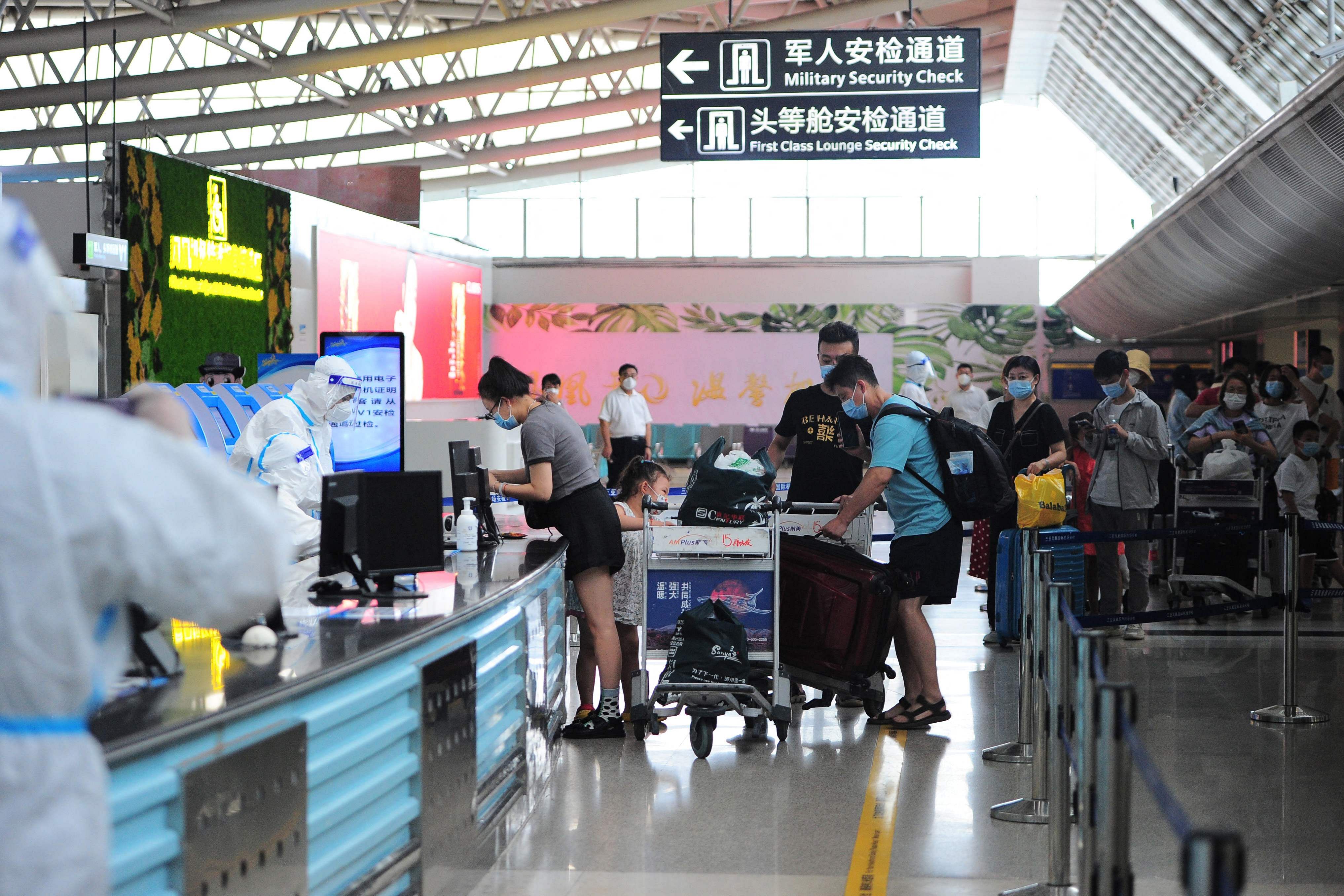News analysis
China's ‘zero-Covid-19’ policy and easing of travel curbs causing confusion, frustration
Sign up now: Get insights on Asia's fast-moving developments

Tourists go through pre-departure procedures at Sanya Phoenix airport, on Aug 9, 2022.
PHOTO: AFP
Follow topic:
BEIJING - Over the past weekend, China announced further easing of its mechanism for Covid-19 related flight suspensions, halting them for a week only if 4 per cent or more of arriving passengers on a flight test positive for Covid-19.
It comes on top of other moves in the past six weeks or so that suggest Beijing is paving the way to reopen the country to international travellers in a bid to rescue the faltering economy.
But the easing is fundamentally at odds with its "zero-Covid-19" policy, which calls for flash lockdowns and movement restrictions the moment an outbreak is detected.
Parts of popular tourist destination Hainan have been put under lockdown, stranding some 5,000 tourists, and is a major blow to consumer confidence.
For many at first, it appeared this was the summer that things would begin getting back on track.
In late June and early July, the government announced a series of tweaks to its Covid-19 policy, including shorter quarantines for international arrivals, and a change in how risk areas were classified. Even if travellers went to cities with active Covid cases, they would technically not be flagged unless they had ventured into areas where there were infections.
Further good news seemed to appear with changes to the national travel tracking system last month, which will now only record a seven-day travel history, instead of 14 days.
Domestic travellers felt cautiously optimistic that they could travel for the summer, even if they were going to a city where there were Covid-19 infections.
Many flocked to the southern island of Hainan for beach getaways, where cases have been relatively low.
But since last week, a rapidly growing outbreak with over 2,000 infections detected since Aug 1 has forced local authorities to impose lockdowns on much of the island.
About 178,000 tourists are stranded in Hainan, including around 57,000 in Sanya, state media reported.

For many, it was an all-too familiar nightmare.
"After months feeling stifled in Shanghai, I thought it'll be nice to get away and breathe in some fresh air and now this has happened," said an investment analyst, who wanted to be known only by her surname, Xiao.
The financial hub - and China's most populous city - endured a bruising two-month lockdown which was officially lifted in June, but many residents have reported that their estates and even districts continued to spring surprise quarantines up till late last month.
Miss Xiao and her two friends have been forced to remain for a week longer in the luxury resort initially booked for four days. While the government has announced that hotels are supposed to charge guests half the room rate during the mandated quarantine, some guesthouses have doubled their prices instead, according to Chinese social media posts.
"I don't get it. On one hand the government seems to want us to resume travelling in the country, and yet they're still adamant about trying to reach zero cases," she said.
These competing interests appeared to be on show Wednesday (Aug 10), during a press conference by the National Health Commission.
Authorities said work is well underway for a nationally integrated system allowing for nucleic acid test results to be accessible in cities other than the location the test was done. This removed a key hurdle to travel as some places did not accept test results from out of town fearing forgery.


NHC officials also reiterated that their tried and tested method of test, trace and isolate in a bid to achieve "zero Covid" has been effective despite multiple outbreaks.
"Through the handling of several rounds of (outbreaks), it can be said that we have proved in practice that the prevention and control plan... is scientific and effective," said NHC official Guo Yanhong.
While most of the world has pivoted to treating the virus as endemic, China is still trying to eliminate the virus even as its citizens have become weary of flash lockdowns, near daily testing and travel restrictions.
But with an important political meeting in the autumn when Chinese President Xi Jinping is expected to seek an unprecedented third term, it appears that any major policy change will have to wait.
"At the rate things are going, I might never want to go on holiday anywhere ever again until things properly open up," said Miss Xiao.

